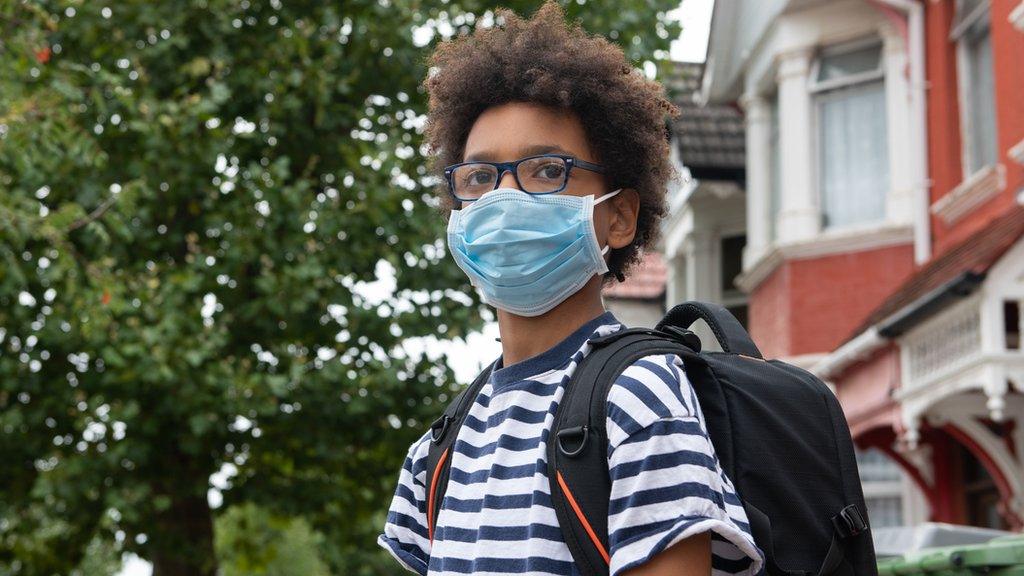Covid-19: Most Coronavirus restrictions in Scotland come to an end
- Published
- comments
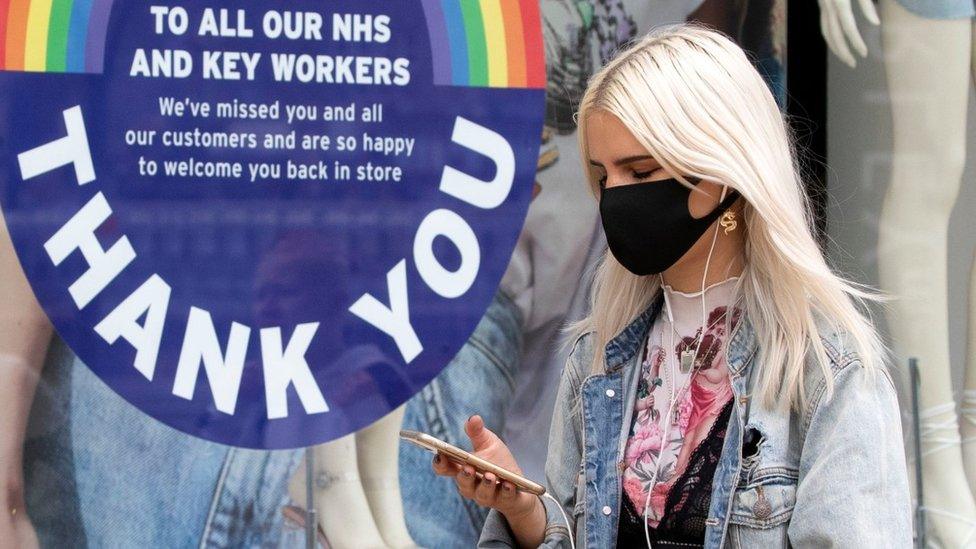
Scotland has left its final level of coronavirus restrictions, although some protective measures remain in place.
The change happened at midnight with level zero restrictions coming to an end.
The legal requirement for physical distancing has stopped in most places and venues like hotels and restaurants do not have to restrict the number of people they let in, like they did before.
But many measures put in place to protect children in school will remain, with Scotland's health secretary Humza Yousaf warning people that "the virus is still with us".
What are the biggest changes?
On Friday it was revealed that children under 12 would no longer have to wear face coverings.
There are also new rules on self-isolation for people who have been in close contact with someone who has had a positive test.
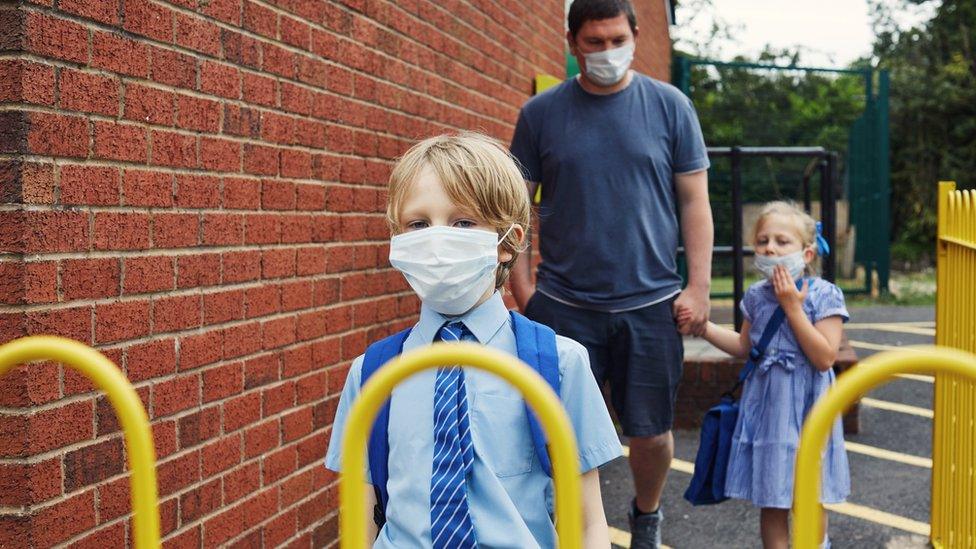
Children under 12 will no longer have to wear face coverings
Whole classes in schools will no longer have to stay at home if an infection is discovered, although children and adults who are higher-risk close contacts will be told to isolate.
Double-vaccinated adults and all children can now avoid self-isolation if identified as a close contact as long as they are symptomless and provide a negative PCR test.
The new rules also signal the return of outdoor events of more than 5,000 people and indoor events of more than 2,000 - but they must apply for permission from local authorities and the government to go ahead.
The end of social distancing means public transport can carry its full number of passengers again.
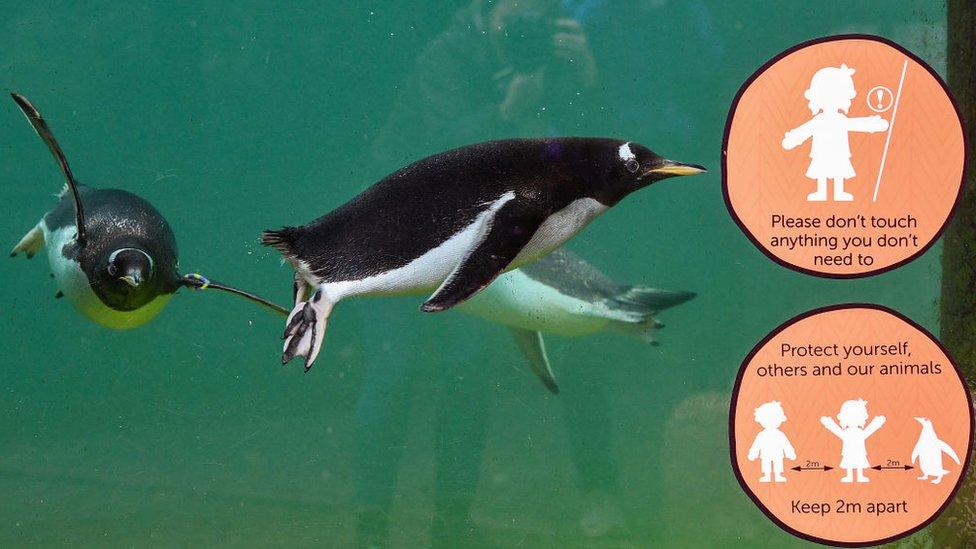
Edinburgh Zoo will be able to allow more visitors
It also means many venues and attractions which could not operate within the rules, can now reopen.
Many tourist attractions including the National Galleries will now move towards using a system of pre-booked and walk-up tickets to manage numbers.
Edinburgh Zoo said from 18 August members will no longer need to book, and they will allow entry to higher numbers of people.
What restrictions are still in place?
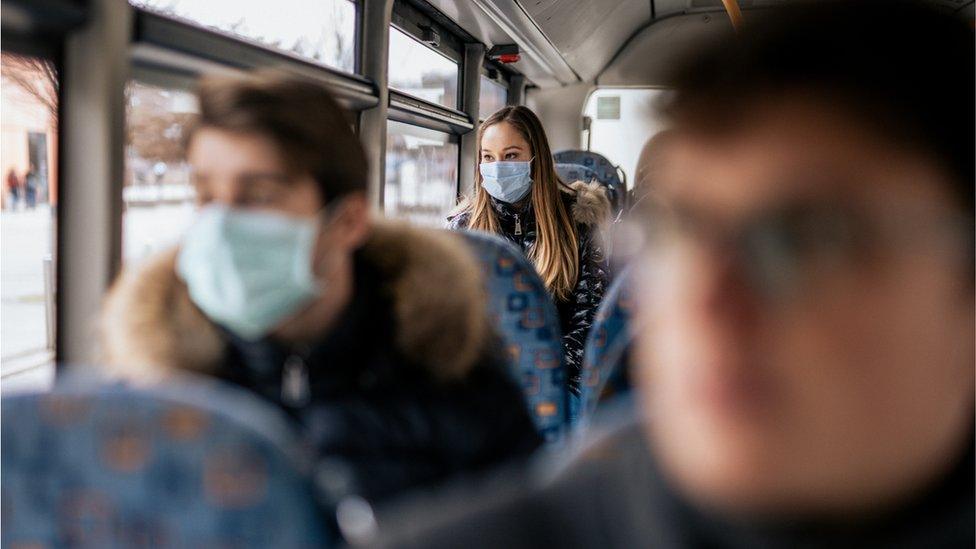
Passengers on public transport will still have to wear face coverings
The restrictions which remain are:
the requirement to wear face coverings indoors in public places and on public transport
pupils and teachers must continue wearing masks indoors for up to six weeks after schools return
school staff must keep at least 1m distance from each other and from children and young people while on the school estate
2m distancing should still be observed in healthcare settings
office workers should still work from home, where possible
details still need to be given at hospitality venues for test and protect
On Saturday, Ms Sturgeon said that Scotland was in a "much better position" with Covid-19 than could have been expected at the start of summer.
But she also urged Scots to "continue to take sensible precautions".
How do the rules compare to the situation in the rest of the UK?
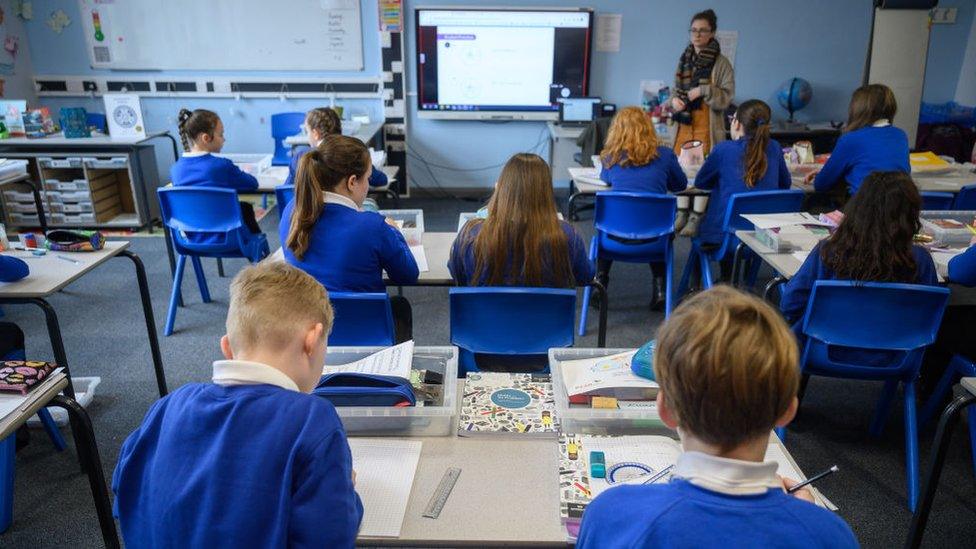
School bubbles have been scrapped in England
England
From 19 July, restrictions in England have been eased, with no need for school bubbles all having to isolate and close contacts being tested rather than sent home.
The need for masks and social distancing also ended and there are no longer restrictions on people meeting up indoors or outdoors, or wearing face coverings.
Wales
The majority of coronavirus restrictions in Wales came to an end on Saturday, with rules on the number of people that can meet indoors and social distancing scrapped.
However, masks are still expected to be worn in shops, health and social care settings, and on public transport.
Also, self-isolation rules will remain in place for people who either have Covid-19 symptoms or who receive a positive test result.
Northern Ireland
In Northern Ireland many restrictions remain in place with limits on the amounts of people who meet both inside and in private gardens.
It is still a legal requirement to wear face masks in many public places including in restaurants and hotels, when not seated at a table.
- Published6 August 2021
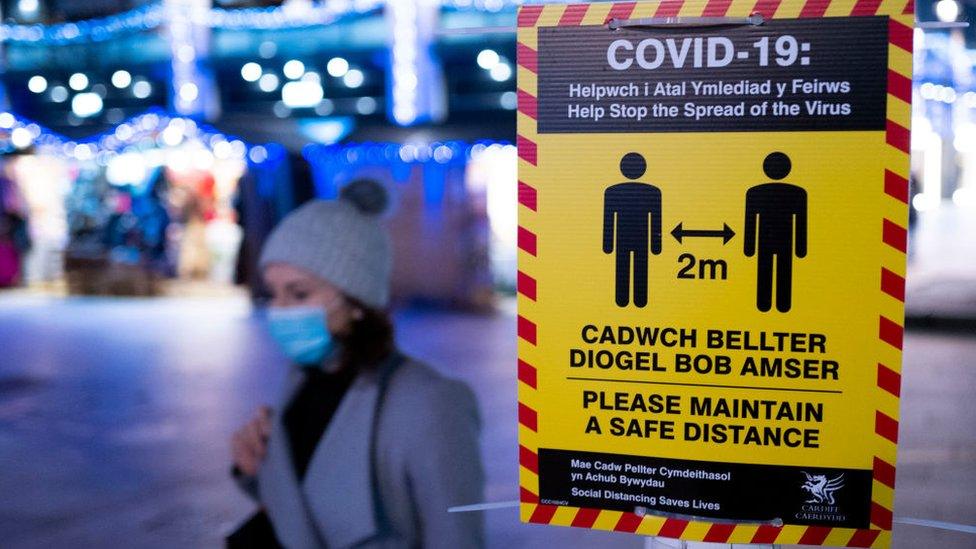
- Published6 April 2022
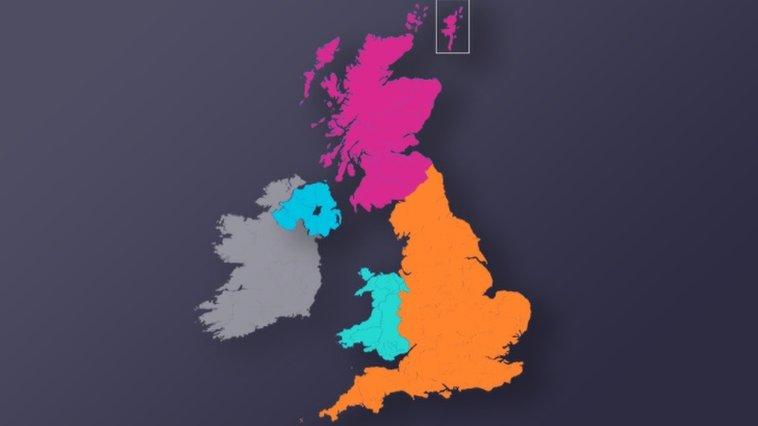
- Published19 July 2021
